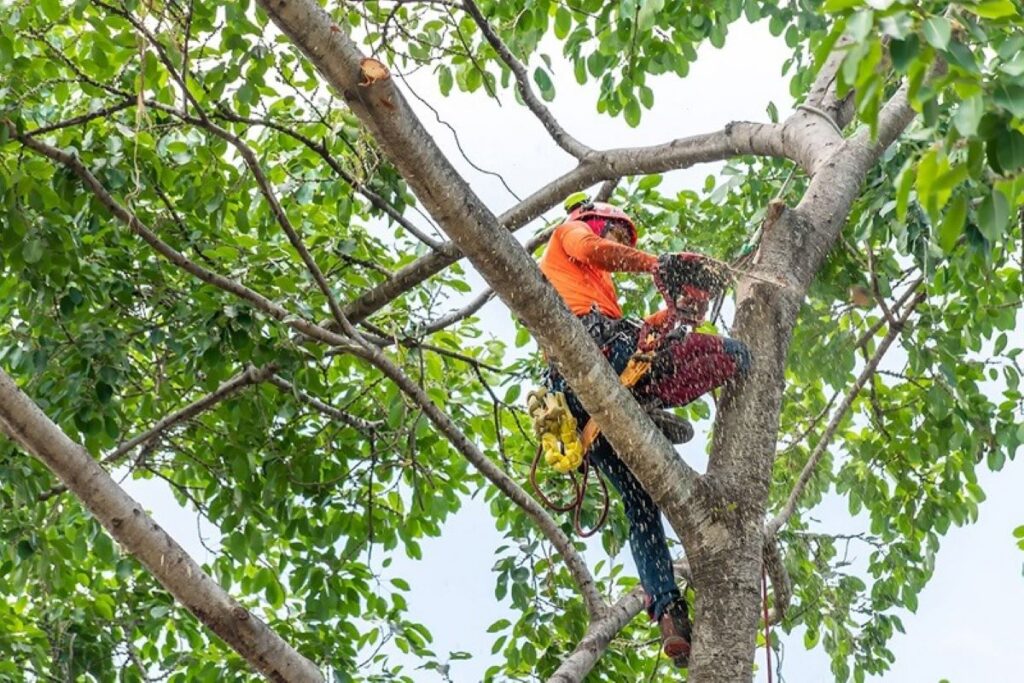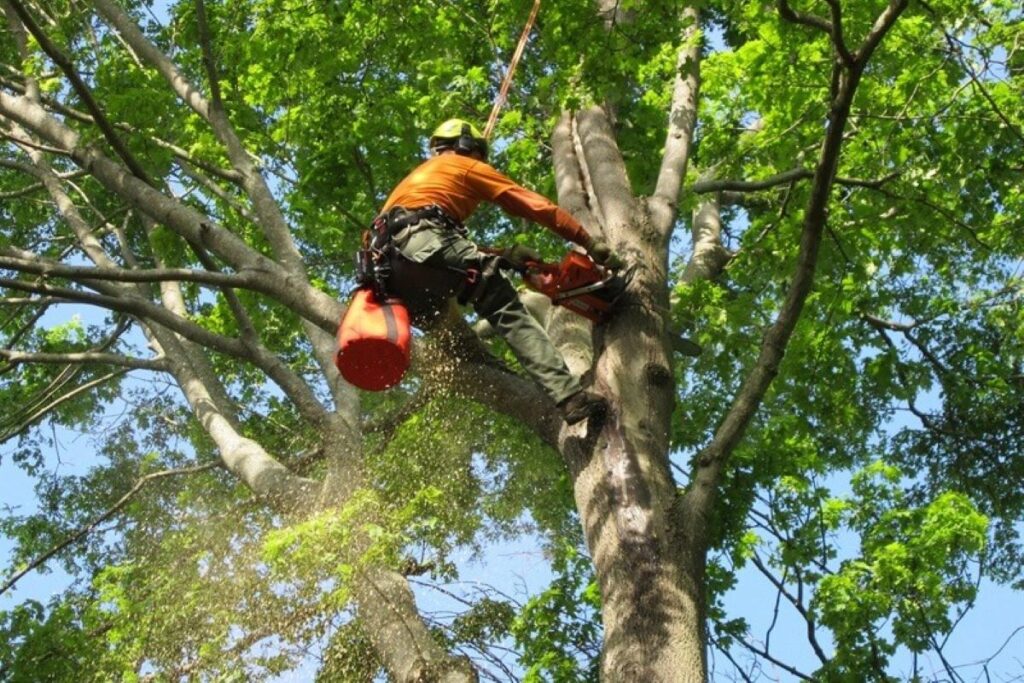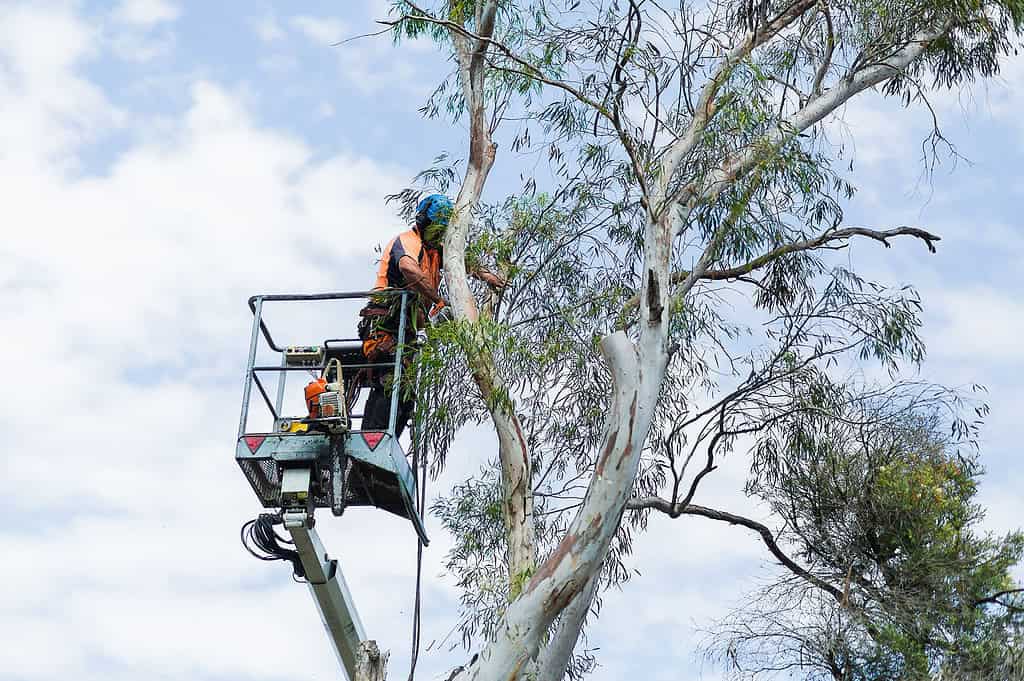What Are the Key Considerations When Choosing Trees for Narrow Blocks in Roseville?
1. Understanding Growth Habits
2. Considering Growth Rate
The growth rate of a tree directly impacts how quickly it fills its designated space. Fast-growing species provide rapid screening but may require more frequent pruning, whilst slow-growing varieties offer easier long-term management. It’s important to consider the mature size of the tree as well, as this will determine whether it will comfortably fit your site for decades without constant intervention.
3. Deciding Between Evergreen and Deciduous
The choice between evergreen and deciduous trees affects year-round privacy and seasonal interest. Evergreens maintain foliage through winter, providing consistent screening, whilst deciduous trees offer changing colours and lighter winter profiles.
4. Assessing Climate and Soil Suitability
The climate and soil conditions in Roseville are also important factors to consider when choosing trees. The area experiences hot, dry summers and mild winters, so it’s essential to select drought-tolerant species once established. Additionally, soil drainage and pH levels can influence root health and nutrient uptake.
5. Understanding Maintenance and Watering Needs
Different tree species have varying maintenance and watering needs. In urban areas like Roseville, there are specific challenges such as restricted root zones and reflected heat from buildings. It’s important to choose trees that can tolerate these stressors without requiring excessive care.
Which Small Tree Species Have a Narrow Growth Habit Suitable for Roseville’s Narrow Blocks?
What defines trees with narrow growth habits? Columnar small trees feature upright, fastigiate forms that grow vertically rather than spreading horizontally. These narrow growth trees Roseville residents favour typically maintain a height-to-width ratio of at least 3:1, making them perfect for confined spaces between buildings or along property boundaries.
Several species excel in tight spaces whilst delivering multiple benefits:
Deciduous options include:
- Crimson Pointe Flowering Plum (20-25 feet tall, 5-6 feet wide)
- Japanese Flagpole Flowering Cherry (25 feet tall, 12 feet wide)
- Frans Fontaine Hornbeam (25 feet tall, 6 feet wide)
Evergreen selections feature:
- Sky Pencil Holly (8-10 feet tall, 2 feet wide)
- Slender Hinoki Cypress (8-12 feet tall, 4-5 feet wide)
- Forever Goldie Arborvitae (12 feet tall, 3-4 feet wide)
These species serve distinct purposes—some provide seasonal colour and spring blossoms, whilst evergreens offer year-round privacy screening and windbreaks without encroaching on neighbouring properties.
What Are the Best Deciduous Small Trees for Narrow Blocks in Roseville?
Crimson Pointe Flowering Plum (Prunus x cerasifera ‘Cripoizam’) is a popular choice among Roseville gardeners looking for narrow trees that bring vibrant colour to their gardens. This variety grows to a height of 20-25 feet while only spreading 5-6 feet wide, making it perfect for small spaces. Its deep burgundy leaves and delicate pink blossoms in spring create a beautiful vertical feature without taking up too much room.
Japanese Flagpole Flowering Cherry (Prunus ‘Amanogawa’) is another excellent option for narrow gardens. This tree grows quickly and can reach around 25 feet tall with a spread of 12 feet. In spring, it produces fragrant pale pink flowers that add a stunning display to tight areas. The upward growth habit of this flowering cherry tree makes it particularly useful for creating privacy or drawing attention to specific spots in the garden.
Frans Fontaine Hornbeam (Carpinus betulus ‘Frans Fontaine’) stands out as one of the best small tree species for narrow blocks in Roseville. It has an impressive height-to-width ratio, growing up to 25 feet tall while only measuring 6 feet wide. This hornbeam tree offers year-round appeal with its fresh green leaves in spring, dense shade in summer, golden foliage in autumn, and textured bark during winter months.
Which Evergreen Small Trees Are Ideal for Narrow Blocks in Roseville?
Goldspire Ginkgo (Ginkgo biloba ‘Goldspire’) reaches 14-15 feet tall and 5-6 feet wide with moderate growth. Its golden autumn foliage creates striking seasonal colour whilst maintaining a tidy columnar form year-round.
Forever Goldie Arborvitae (Thuja plicata ‘4EVER’) grows to approximately 12 feet high and 3-4 feet wide. This evergreen columnar tree Roseville gardeners favour provides dense screening for privacy without consuming precious lateral space.
Sky Pencil Holly (Ilex crenata ‘Sky Pencil’) offers the slimmest profile among narrow evergreen species, growing 8-10 feet tall but only 2 feet wide. Its slow growth rate minimises pruning requirements whilst delivering vertical interest in the tightest spots.
Slender Hinoki Cypress (Chamaecyparis obtusa ‘Gracilis’) matures at 8-12 feet tall and 4-5 feet wide. The slow-growing nature and dense, layered foliage make it perfect for formal gardens where consistent shape matters more than rapid establishment.
See Also : Arborist Cherrybrook how to protect young trees from storm and wind damage
What Are Some Narrow Juniper Varieties Suitable for Confined Spaces?
Junipers offer exceptional drought tolerance and year-round structure for Roseville’s narrow blocks. These slender juniper trees Roseville residents favour require minimal water once established, making them practical choices for low-maintenance gardens.

Here are some narrow juniper varieties suitable for confined spaces:
- Moonglow Juniper: Reaches 15-20 feet tall with a 6-8 foot spread, displaying silvery-blue foliage that adds cool tones to tight spaces.
- Blue Arrow Juniper: Grows taller at 12-15 feet but maintains an impressively narrow 2-3 foot width, perfect for the slimmest garden beds.
- Skyrocket Juniper: Achieves heights of 15-20 feet whilst staying under 3 feet wide, creating dramatic vertical accents without encroaching on pathways.
- Pencil Point Juniper: Provides the most compact option at 6-8 feet tall and just 1-2 feet wide, ideal for extremely confined areas.
These juniper varieties thrive in Roseville’s hot, dry summers without constant irrigation. Their dense evergreen foliage provides effective screening and privacy throughout all seasons, whilst their upright forms complement contemporary and traditional garden designs equally well.
Can Native or Edible Small Trees Thrive on Narrow Blocks in Roseville?
Yes, native small trees Roseville residents can plant include bottlebrush (Callistemon) and crepe myrtle (Lagerstroemia), both thriving in hot, exposed conditions typical of west-facing gardens. These sun-tolerant species handle Roseville’s climate exceptionally well, offering vibrant blooms whilst maintaining compact forms suitable for narrow spaces.
Edible trees small spaces accommodate include citrus varieties such as dwarf lemon or mandarin, which typically reach 2-4 metres in height with manageable canopy spreads. Olive trees (Olea europaea) present another excellent choice, growing slowly to around 3-5 metres with minimal width when properly maintained through annual pruning.
West-facing gardens common throughout Roseville benefit particularly from these selections:
- Bottlebrush: tolerates full sun, grows 2-4 metres tall, produces striking red flower spikes
- Crepe myrtle: reaches 3-5 metres, displays summer blooms in pink, purple or white
- Citrus trees: provide fragrant flowers, edible fruit, and stay under 4 metres
- Olive trees: drought-resistant once established, silvery foliage adds Mediterranean character
These Best Small Tree Species for Narrow Blocks in Roseville combine practical benefits with ornamental appeal, adapting well to confined urban settings whilst providing year-round interest. Read more about Tree health, root and insect management.
How Should You Prepare Your Narrow Block Site for Planting Small Trees?
Site preparation for small trees begins with evaluating soil quality and drainage conditions. Test your soil’s structure and pH levels, then amend with organic matter if needed to improve drainage and nutrient availability. Poor drainage leads to waterlogged roots and eventual tree decline, particularly critical in confined urban spaces.
Root development in urban gardens depends heavily on proper watering techniques during establishment. Deep, infrequent watering encourages roots to grow downward rather than staying shallow. Install drip irrigation or soaker hoses to deliver consistent moisture directly to the root zone without wasting water on surrounding areas.
Space planning prevents future problems with overcrowding. Measure the mature width of your chosen species and position trees accordingly:
- Allow at least 1.5 metres from buildings and fences
- Account for overhead clearance near power lines
- Consider sight lines for driveways and pathways
- Leave adequate room between multiple plantings
Mark out the mature canopy spread using stakes and string before digging to visualise the final footprint.
What Maintenance Practices Help Keep Small Trees Healthy on Narrow Blocks?
Regular pruning maintains the compact form essential for tree maintenance in narrow spaces. Annual trimming during dormancy removes crossing branches and controls height, preventing encroachment onto neighbouring properties or structures. Pruning small urban trees requires selective cuts rather than heavy shearing to preserve natural shape whilst managing size.
Water monitoring becomes critical during extended dry periods typical of Roseville summers. Deep watering every 7-10 days encourages roots to grow downward rather than spreading laterally into limited space. Mulch applied 5-8cm deep around the base retains moisture and regulates soil temperature.
Pest and disease vigilance prevents problems before they escalate in confined plantings. Inspect foliage monthly for signs of scale, aphids, or fungal issues common to specific species—Sky Pencil Holly may attract spider mites whilst Hinoki Cypress can develop root rot in poorly drained soil. Early detection allows targeted treatment without resorting to broad-spectrum chemicals that harm beneficial insects.

Conclusion
Choosing the best small trees for your garden in Roseville starts with a honest assessment of your site’s unique conditions—soil type, sun exposure, drainage patterns, and available width are all important factors to consider. If you have a narrow block, it’s crucial to select the right species carefully to avoid problems from overgrown plants in the future.
Local nurseries and certified arborists have valuable knowledge about which Best Small Tree Species for Narrow Blocks in Roseville will truly thrive in your specific microclimate. They can spot potential issues before planting and suggest proper installation methods that will ensure your trees grow healthy for many years.
Make sure to measure your planting area accurately and seek professional advice for this urban planting decision that will shape your landscape for years to come.
FAQs About Best Small Trees for Narrow Blocks in Roseville
Focus on growth habit, mature height and width, evergreen vs deciduous type, climate and soil suitability, and maintenance requirements to ensure trees fit without overcrowding or causing damage.
2. What are the advantages of columnar or upright small trees?
Columnar trees grow vertically rather than spreading wide, saving lateral space, reducing interference with structures or neighbours, and providing privacy or screening in tight gardens.
3. Which deciduous small trees suit narrow blocks in Roseville?
Crimson Pointe Flowering Plum (20-25 ft tall, 5-6 ft wide)
Japanese Flagpole Flowering Cherry (25 ft tall, 12 ft wide)
Frans Fontaine Hornbeam (25 ft tall, 6 ft wide)
4. Which evergreen small trees work well for narrow spaces?
Sky Pencil Holly (8-10 ft tall, 2 ft wide)
Slender Hinoki Cypress (8-12 ft tall, 4-5 ft wide)
Forever Goldie Arborvitae (12 ft tall, 3-4 ft wide)
Goldspire Ginkgo (14-15 ft tall, 5-6 ft wide)
5. Are there suitable narrow juniper varieties for Roseville gardens?
Yes. Options include:
Moonglow Juniper (15-20 ft tall, 6-8 ft wide)
Blue Arrow Juniper (12-15 ft tall, 2-3 ft wide)
Skyrocket Juniper (15-20 ft tall, <3 ft wide)
Pencil Point Juniper (6-8 ft tall, 1-2 ft wide)
6. Can native or edible small trees thrive on narrow blocks?
Yes. Natives like bottlebrush and crepe myrtle, and edible trees such as dwarf citrus or olive trees, perform well in Roseville’s hot, dry climate while keeping a compact footprint.
7. How should I prepare a narrow block for tree planting?
Assess soil quality and drainage, amend as needed, plan spacing for mature size, allow adequate distance from structures and power lines, and consider drip irrigation or soaker hoses for deep root growth.
8. What maintenance practices keep small trees healthy in narrow spaces?
Annual pruning to maintain shape, deep watering every 7–10 days, mulching 5–8 cm deep, and regular monitoring for pests or diseases help trees thrive without outgrowing confined spaces.
9. Should I consult a professional before planting trees on a narrow block?
Yes. Certified arborists and local nurseries can recommend species suitable for your microclimate, advise on spacing, and provide installation techniques that ensure healthy, long-term growth.


Comments are closed